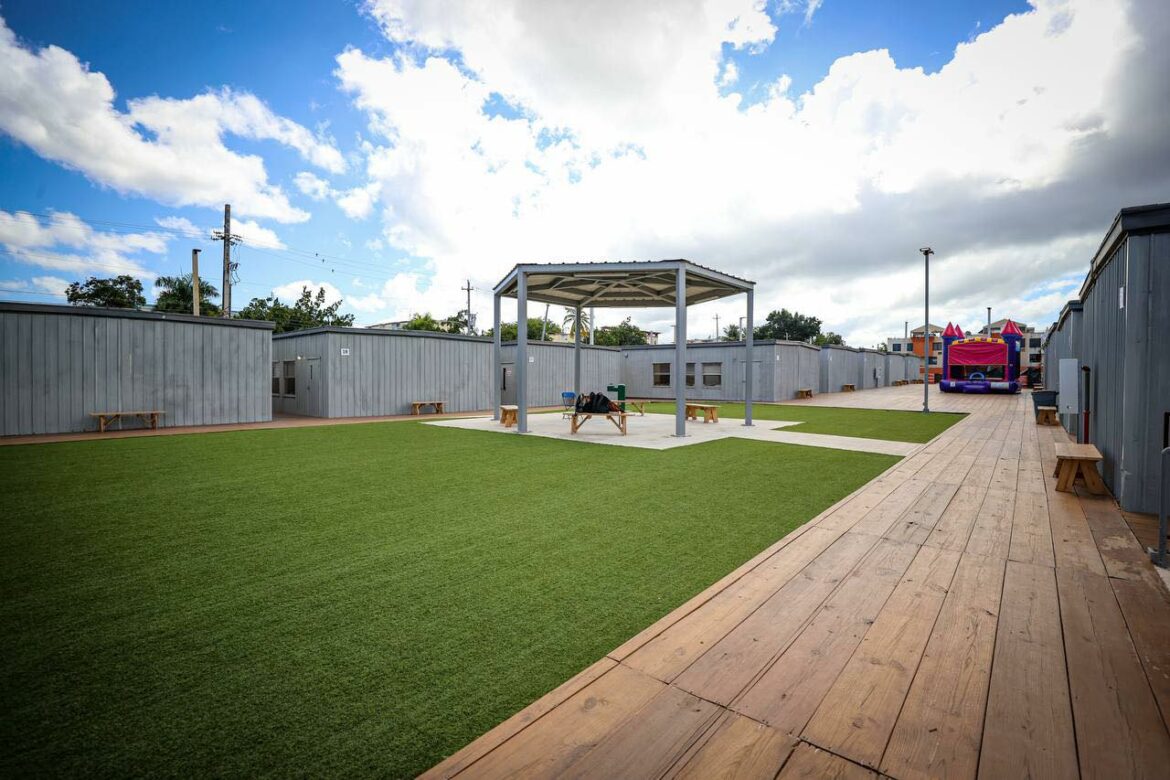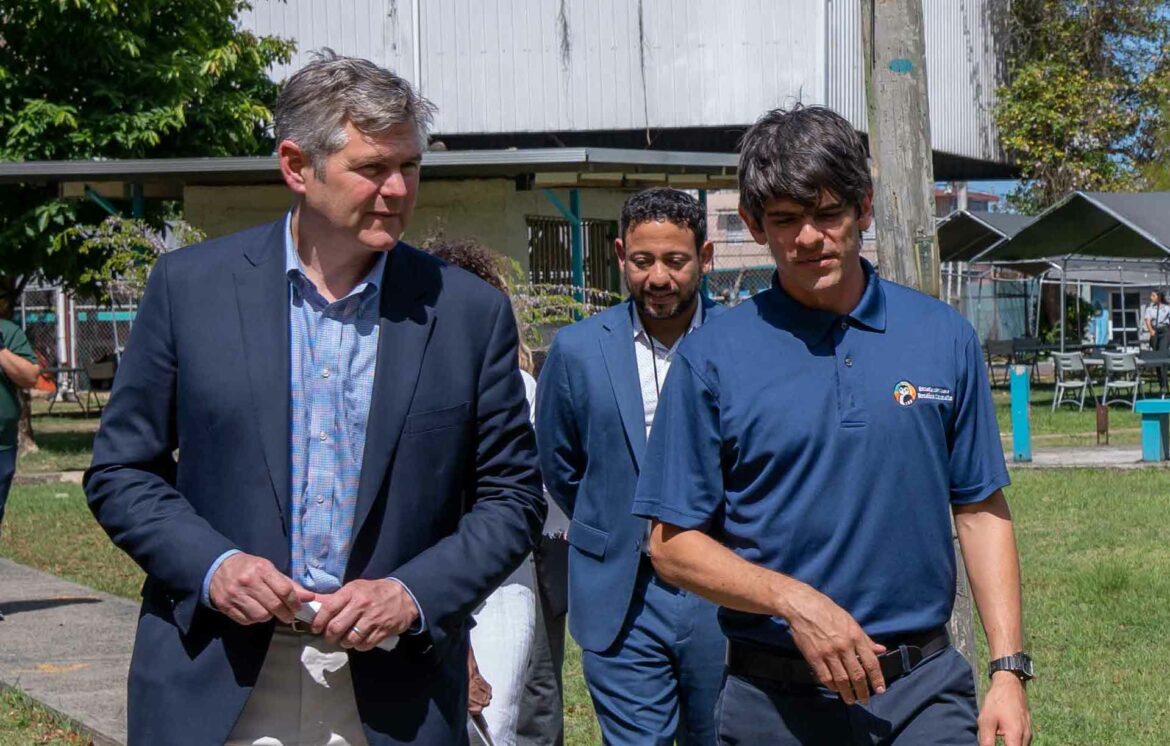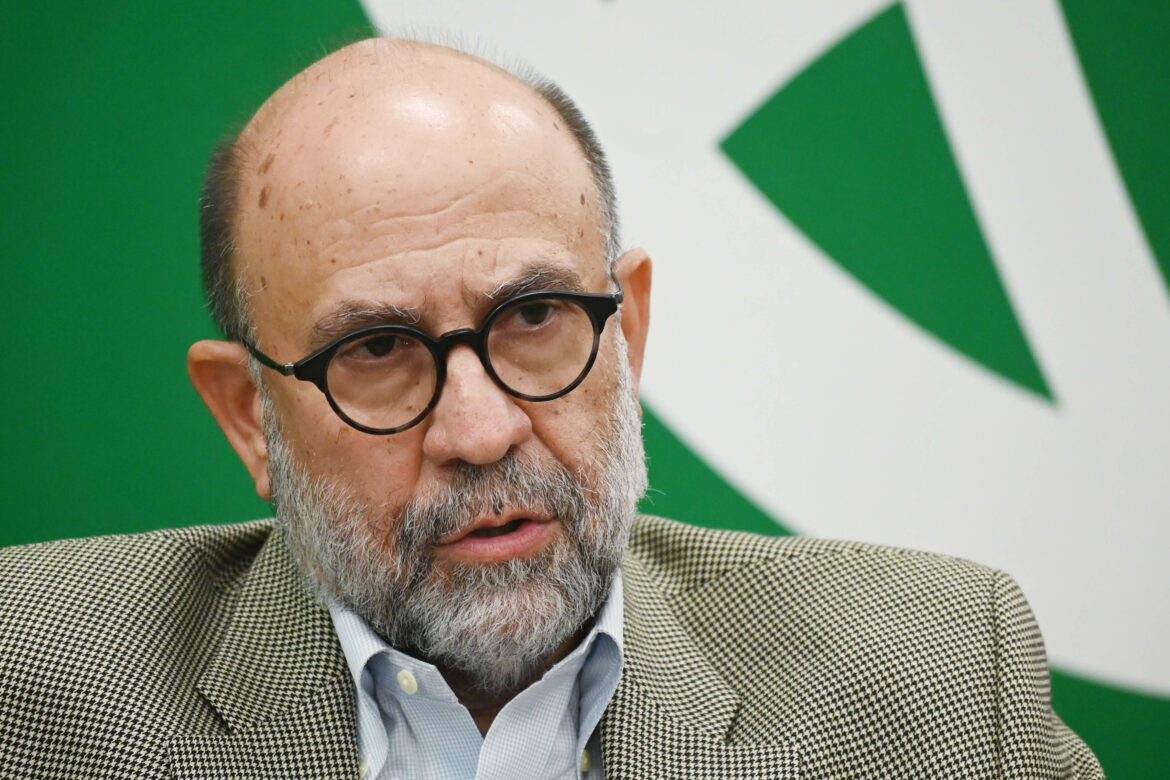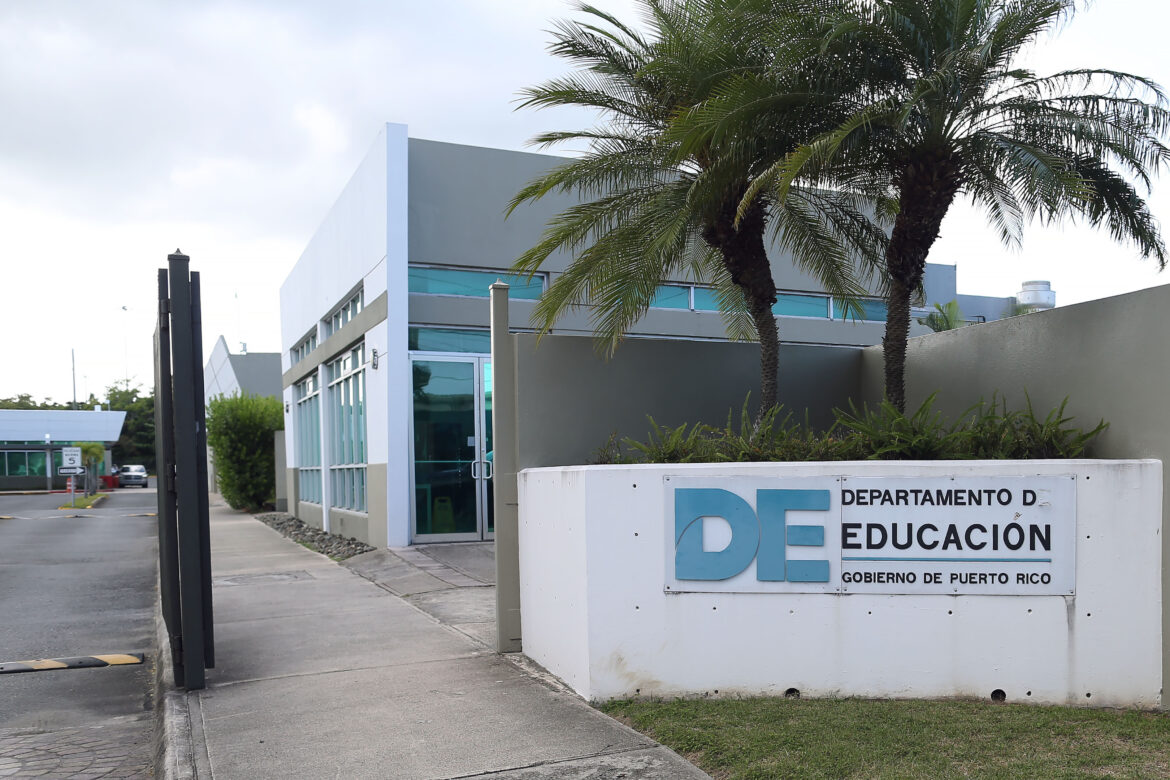Through the Escuelas Públicas Alianza, known as charter schools, the Department of Education (DE) committed to offering “free, non-sectarian, quality public schools free of any discrimination,” but the record shows, there are no periodic reports or effective tools that can corroborate the execution of that promise by those institutions that began operating in Puerto Rico six years ago.
Until last fiscal year, Alianza schools received a budget that exceeded $40 million in public funds for an enrollment of 3,000 students. Although the DE is responsible for supervising the proper use of the funds approved for the 12 charter schools that operate in Puerto Rico, the truth is that it does not have reports or statistics on their performance, an investigation by the Center for Investigative Journalism (CPI, in Spanish) found.
Furthermore, Conoce tu escuela, the platform that the DE uses to present the performance of the schools to the public, shows poor or failed performance of the only two Alianza charter schools that appear on this website: the Leap Steam +E Academy in San Juan and the Escuela con Causa Rosalina C. Martínez in Guaynabo. The website shows the performance of 833 public schools.

Photo taken from Facebook
The Leap Alliance School, which began operations in 2021, is among the 37.3% of public schools in Puerto Rico that got two stars for its performance that year. That is the second lowest score given by the DE in its evaluation in which five stars is the maximum score.
Meanwhile, the Escuela Con Causa Rosalina C. Martínez, which began operating as a charter in the 2019-2020 school year, got ratings of one to two stars between the academic years of 2018 to 2021. The CPI did not get a response from the school administration about these ratings.
As the DE explained on its website, for this Conoce tu escuela evaluation it used the “Star Framework” model, in which schools receive a rating that considers the results of the META standardized tests, the school average based on their students’ grades by subject, college admission test results, as well as, absenteeism and graduation rates.

Photo taken from Facebook
Of the 833 schools rated between 2018 and 2021, 30% received three stars, followed by 28% receiving four stars, 25% getting two stars, 12% getting the maximum five stars and 2% getting the minimal score.
Beyond this evaluation in which schools earn stars for their performance, the Office of Alliance Public Schools (OEPA, in Spanish) has the obligation to submit an annual report on the educational quality of each of the charter schools, but such documentation is not available. There is only a brief report on its website about the first charter that was established in Puerto Rico in 2018, the Vimenti School. Although Act 85, known as the Educational Reform, establishes that annual reports must include the documentation with which a school is evaluated, Vimenti’s report does not contain that information.
The educational quality report written by Gilberto Trinidad Rivera — who worked with the OEPA — notes that after a visit to the Vimenti School on October 30, 2019, the institution’s administration evidenced the academic progress of its students, only for kindergarten and first grade at the time.
In the document of barely two pages, the official assured that the teachers at this school located in the Ernesto Ramos Antonini Public Housing Complex, are qualified and trained. He also said activities were carried out on school grounds to encourage community participation; and that the institution meets its financial obligations.
“The institution presented all the required evidence and demonstrated excellent organization. The Office of Alliance Public Schools congratulates you and urges you to continue with your mission,” Trinidad Rivera said in his report dated January 22, 2020.
Vimenti’s administration indicated in written statements to the CPI that it was also evaluated in 2021, 2022 and 2023. That last year, “the process included the participation of external audit resources. However, it is up to the Department of Education’s Office of Alliance Public Schools to disseminate the evaluation results.”
The interim director of the OEPA, Sol I. Ortiz Bruno, told the CPI that they will not publish the annual educational quality reports on the DE website until they finish assisting two other alliance schools in the implementation of their corrective action plans. The official did not specify which charter schools have to take corrective action and whether the reports will reflect performance prior to correcting the deficiencies.
Former Secretary of Education, César Rey Hernández, told the CPI that the DE lacks an efficient structure and tools to evaluate and ensure the quality of educational services.

Photo by Dennis A. Jones | Metro Puerto Rico
“[The agency] has a quality control problem. Managing such a complex project administratively is very difficult if you don’t have an adequate structure. In other words, the assessment element has never been a strong point of the Department of Education, and that translates into all academic projects as well,” said Rey Hernández.
The founder of Leap, Gloria Bonilla Santiago, stated in writing that “there have been no evaluations [by the OEPA], we only received an informal monitoring visit.”
In the case of the Christian Military Academy Alliance, OEPA personnel notified that they would visit the school in Vega Baja for monitoring in February 2023, after starting operations in August 2020. That visit took place three months later and was not until November that the school administration learned, through a letter from the DE, that they had to develop a corrective action plan, according to what the school director, Ana M. Rivera, told the CPI.
The directors of the Alianza Camino al éxito, Cacica Yuíza and Coalición cambiando la ecuación Schools confirmed that they were evaluated, but like Vimenti, they referred the CPI to the OEPA for details and results of the monitoring.
Other Educational Models Achieve Better Performance Without Extraordinary Budgets
The Alianza Public School is not the only model that the DE must supervise within the public education system. It also has the obligation to supervise the execution of the 58 public Montessori schools that exist in Puerto Rico. According to the regulations of the Auxiliary Division of Montessori Education, these schools are evaluated according to the goals and work plans of each school, as well as academic achievement. Furthermore, the Division must maintain statistics and reports on the achievements of these schools.
The educational model developed more than 100 years ago by Italian national María Montessori, integrates groups of students of different ages, promoting peer learning, blocks of uninterrupted work time, a guide or teacher trained in the Montessori philosophy, and an environment or room prepared with materials according to the ages of the groups.
These 58 schools have a total enrollment of 14,718 students, and until the 2020-21 school year, they received a budget allocation of $60,543,301. That is, $20 million more than the total allocated to the Alliance Schools and for a higher enrollment of 11,489 students (or 356%). When examining the ranking of Montessori schools over the past four school years in the Conoce tu escuela system, 38% of educational institutions upheld ratings of three to five stars.
Meanwhile, there are 61 specialized schools in Puerto Rico that serve an enrollment of more than 20,000 students and until 2020-21 they were allocated $74,487,489. Specialties include languages, arts, music, sports, science, mathematics, engineering, and technology. During the four years analyzed, 54.5% of these schools had maximum scores between three to five stars.
The school budgets for Montessori and specialized schools were obtained from the School Profile, which do not coincide with the state and federal budgets and special allocations delivered to the CPI after suing Education.
Agreement with the Municipality of Carolina Makes Leap Expansion Possible
The DE isn’t the only one paving the way for charters. The Municipality of Carolina has facilitated the accelerated expansion of the Leap Steam+E Academy Alianza Public School. The city council leased three municipal schools where it currently receives students in the afternoons for classes and tutoring in specialized areas. Leap would use the schools for its charter program in the mornings.
The contract signed between the Municipality of Carolina and the nonprofit corporation in November 2023 states that the charter school will pay the city $300,000 annually, subject to the DE approving Leap’s proposal to run other charter schools in August. The leasing agreement was fast tracked to the Municipal Legislature last July, the CPI learned.
The manager of the Municipality of Carolina’s services area, Víctor Pellot Rosa, said the agreement signed with Leap does not affect the educational services that the Municipality already offers.
“We have students from the Department of Education and private schools. They go to their schools on a regular schedule, and they come to our schools in the afternoon. The agreement is that Leap will use the facilities in the morning, and in the afternoon the specialized [municipal schools] will continue [operating] [in tutoring] as they are until now.”
However, the contract says that the Municipality of Carolina made these three schools available to the private corporation from 7 a.m. until 8 p.m., so that the institution could carry out its extended tutoring program.
The municipal administration also committed to provide maintenance and security personnel. Likewise, it assumes the costs of electricity, water, and minor repairs of the School of Fine Arts. Similarly, it provides materials and instruments for arts and music classes, as well as transportation for students. The Municipal Department of Education assists Leap in the audition processes, registration, attendance, and access of its students to the regular programming of the specialized schools, according to the contract.
“If there’s a student who wants to be at that other school [Leap Academy], then they request it. But, that students and teachers [from municipal schools] move automatically to Leap is not part of the agreement. Our employees will continue with their work as before, unless Leap has an opening and they want to go there,” said the municipal official. The CPI confirmed that the Municipal Education Director, Myra Trujillo Muñiz, who defended the agreement with Leap before the Municipal Legislature, resigned from her position and now works for the Alianza school.
The contract establishes that Leap will pay for the installation of a power generator for the School of Fine Arts, as well as the construction work of interior divisions of the schools. It will also be responsible for acquiring the equipment to enable classrooms, science laboratories, office equipment, computers, platforms, and internet service. It is also clear from the contract that it will establish an “early college” program and a model program for Carolina in conjunction with higher education institutions. The institution must recruit no less than 110 new employees in coordination with the city council.
According to the magazine produced by the Municipality, the curriculum offered during extended hours in the so-called “Tierra de Gigantes” specialized schools has an enrollment of more than 800 students, whose families pay $100 per semester.
The goal of Leap Social Enterprise Inc. is to open four schools in August 2024. The first school that opened offers classes to 660 students in temporary containers installed next to the Gerardo Sellés Solá School in San Juan, now closed, which the corporation rents for $1 a month from the Department of Housing with an option to buy.
Bonilla Santiago said in written statements that, “the agreement with the DE and the Department of Housing was to locate the LEAP STEAM + E Academy of San Juan facilities there, but because the structure was in very poor condition and it was necessary to obtain funds for its rehabilitation, the charter company decided to launch operations where the school is currently located,” referring to the containers on Capital city property.
Through a grant from the U.S Environmental Protection Agency (EPA), an environmental assessment will be conducted, and a remediation plan will be developed for the Sellés Solá School. If the educational institution raises private funds and other federal allocations, it will establish the operations of the LEAP STEAM + E Community Resilience Center — which includes an educational, social, and economic development activity center and the Alianza Public School — in what is today was the public school closed six years ago under the administration of convicted former DE Secretary, Julia B. Keleher.
The Origin of Charter Schools
Charter schools emerged during the 1990s in the United States, where until fall 2021, they served 7% of students in the public education system, according to data from the National Center for Education Statistics.
These types of schools are based on the proposal of a neoliberal education model by economist Milton Friedman, according to the former Secretary of Education, César Rey Hernández, in a study done for the Education Observatory. Friedman proposed an educational model that would allow families to opt into any state-approved school through a certificate or voucher. This is how charter schools originated, an option defended by some sectors as the solution to the problem of poor public schools. But teachers, unions and civil organizations claim that these schools involve putting public money in private hands, which could mean the loss of student enrollment and greater fiscal pressure on existing public schools.



